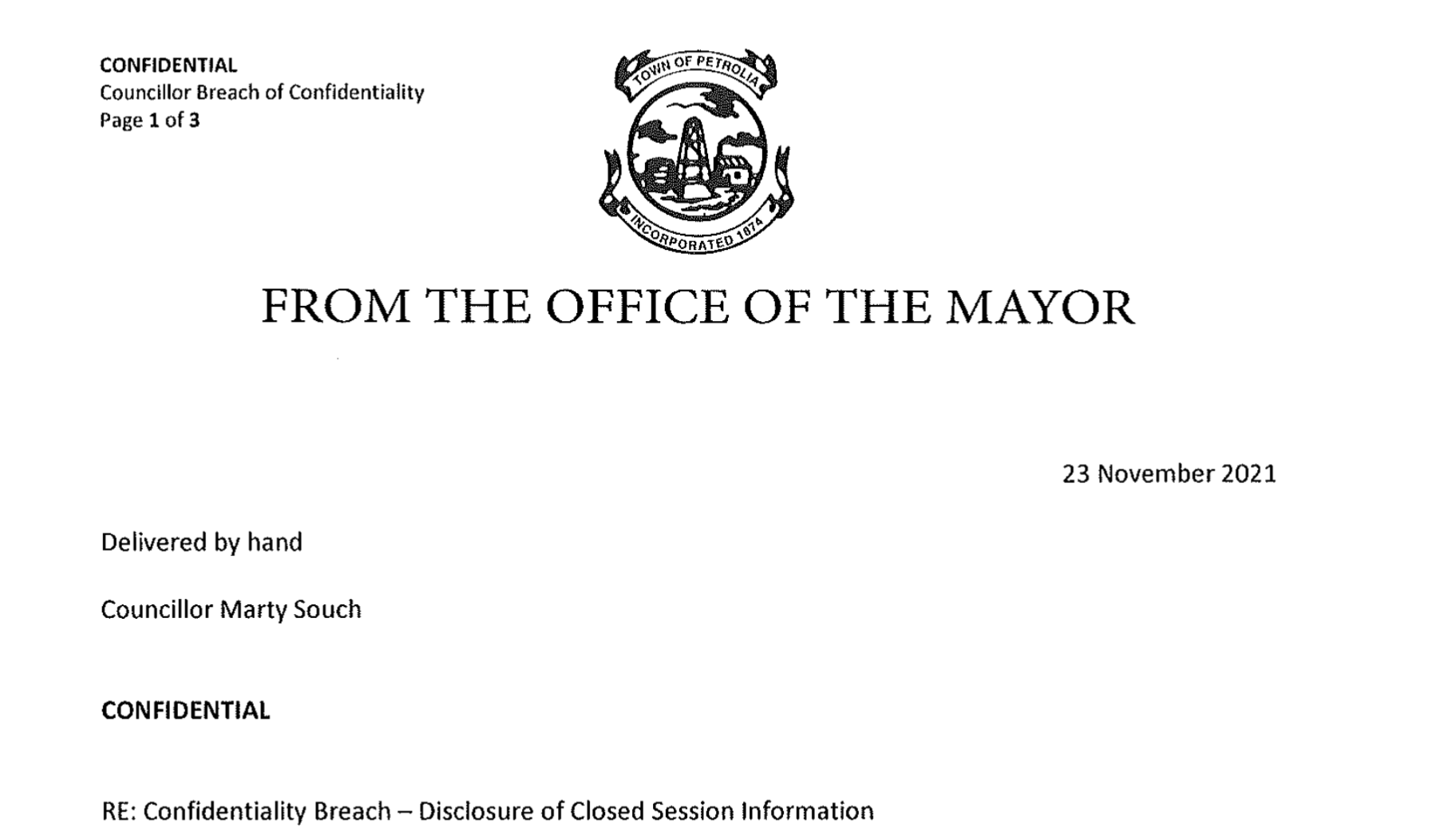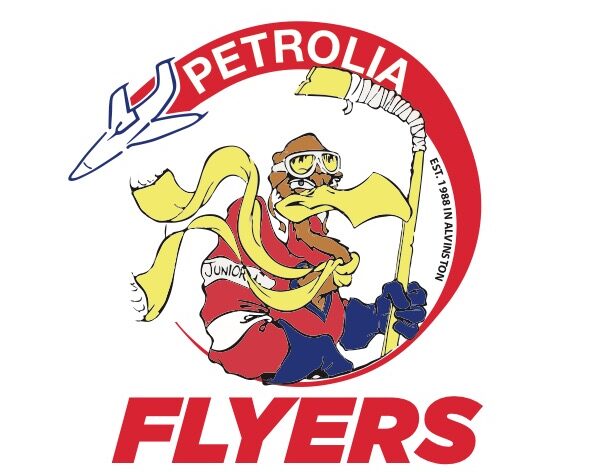Wyoming’s Jackson taken by Yankees in MLB Draft

Lambton-Kent-Middlesex candidates tackle deficit, COVID
September 17, 2021
Heather Wright
The Independent
From pandemic controls to climate change, there is a vast array of ideas from the candidates for the Sept. 20 federal election in the Lambton-Kent- Middlesex riding.
Four of the five people running for the seat recently took part in a virtual debate hosted by The Independent.
Conservative candidate, Lianne Rood, who is the sitting MP, did not attend saying she was too busy going door-to-door. Rood has yet to engage with the other candidates in a debate with just days before the vote.
All the candidates expressed regret that Rood failed to show up for the debate to talk about the issues. But that was about the only idea they fully agreed on. Here’s a flavour of what the candidates said on various issues;
On Climate; NDP candidate Jason Henry – the current chief of the Kettle and Stoney Point First Nation – says for “far too long we’ve placed the economy above the environment” and that has to change. He says the “great minds” in the petrochemical industry should be part of the solution to climate change.
Liberal candidate Dr. Sudit Ranade – Lambton’s Medical Officer of Health – says industry is already making changes as it sees investors moving toward green technology. “You have to move as fast as you can to make a difference and slowly enough to bring people along… the evidence is fairly clear what we have to do… it’s going to take political will to do it.”
Green candidate Jeremy Hull, a small business owner, says it’s clear we can’t get rid of fossil fuels completely immediately, but the federal government has to “invest in technology” to move the green economy forward.
Kevin Mitchell, the Peoples Party of Canada candidate, was clearly on the other side of the issue saying Canada should remove itself from international agreements to cut carbon emissions and to “maximize” Canada’s natural resources now. And, he says if people want greener technologies, the market will step in. “Government investing in green technologies? No that’s not how we do things in a capitalistic society…Canadians are sick of handing out money to big business.”
On Long Term Care: All the Lambton-Kent-Middlesex candidates at the debate agreed there has to be federal standards in long term care after watching seniors die from lack of care during the pandemic.
The NDP, Henry says is calling for an end to for-profit care, however the Liberal candidate, says that’s not possible because of the shortage of long term care in the country. And Ranade says private industry may help drive innovation which could be important in all homes. Ranade favours giving funding for long term care “with strings attached.
Both Henry of the NDP and Ranade of the Liberals say the government has to invest in more home care earlier.
On the deficit and pandemic funding: The NDP, Liberal and Green candidates in Lambton-Kent-Middlesex all agreed the federal government had to provide supports during the pandemic lockdowns. Ranade added he is hearing from people how the benefit saved families before they “tanked” because of lack of work.
Mitchell didn’t directly answer whether the $169 billion in COVID-19 supports were necessary, but said the PPC is the only party which will end all COVID-19 restrictions. And he says the PPC is the only one committing to a balanced budget.
“We send $6.9 billion to foreign countries, that’s done… No more big business bail outs… we’re in huge financial trouble but every answer the Liberal party has is spending our way out of it.”
Ranade agrees the pandemic supports have to be reevaluated to see “what we can pull back on to encourage people to carry on.” And he says the federal government has to “rein in all types of spending” but he cautioned the PPC plan would have some serious consequences. “The only way to do that is by dramatic and drastic cuts,” said Ranade.
“That’s not what I said,” shot back Mitchell. “Don’t put words in my mouth.”
The NDP’s Jason Henry is also “concerned about a (PPC) plan that would bring us back to zero” and asked if health care, child care or the NDP’s proposal for pharma care would be cut. Or if the money would come from funding given to Indigenous communities.
Mitchell says Party Leader Maxime Bernier has promised the current funding for Indigenous communities would remain as it is.
Hull believes while the federal government did what it had to during the pandemic, the federal government now needs to “look at every dollar being spent.” And while Hull believes the federal deficit has to be tackled, he doesn’t want to cut services to get there.
On reconciliation with Indigenous people: The NDP, PPC and Liberal candidates all agreed that reconciling with Indigenous people requires respect for people and the horrors they’ve lived through, particularly at residential schools. Ranade says on a personal level, he has an obligation to understand the history of Canada’s treatment of Indigenous people and on a political level to ask the communities how and when they want to engage.
Mitchell says Canadians have to recognize the damage done and have empathy for the community. “It’s just basic respect,” added Hull.
For Henry, an Indigenous man who has felt the pain of Canada’s actions, he decided to run to advance reconciliation. “It’s not because I was ready; Indigenous people have been waiting,” he says. But this summer’s outpouring on Canada Day, particularly a 15,000 person march in London, “to have a show of solidarity so immense that it gave tears to people.
“It brought hope to the hopeless. I’ve been waiting for Canadians to pay attention…for people to believe it is time to reconcile.”
To see the full, two-hour debate, go to The Independent of Petrolia and Central Lambton’s Facebook page.
Meantime, Sept. 14, the three local agriculture federations focused on farming and agriculture.
Farmland itself was a major topic. Jay Cunningham, president of the Kent Federation of Agriculture, says less than five per cent of land mass in Ontario remains arable for farming and this number gets smaller every day.
Henry, who serves as chief of Kettle and Stony Point, says the problem starts with farmers being put in a situation where they just can’t maintain the land. “If farmers and farm families have the ability to have a sustainable future in that business with family that would take over, they wouldn’t be pressured to sell.”
“If we can help uphold the farmers and their businesses then it will be easier for them to hold onto that land,” says Henry.
Ranade says the issue starts away from the rural areas with urban sprawl. The chief medical officer of health for Lambton County promotes building up instead of out as cities and towns get bigger.
The rookie Liberal candidate also called for more innovative use of existing space, “restoring things you have or finding new ways to use the space you have to live there.
Ranade also says multi-generational living should be prioritized. “More and more people want to be able to live with their parents as they age… but maybe not right with them,” he joked.
People’s Party candidate Kevin Mitchell had his own take, blaming immigrants for the loss of farmland. “You see more and more immigrants spreading through the country… They cause farmland to be bought up because we have to build more housing. We have to limit immigration and be much more strategic with it immediately,” he says.
Mitchell claimed “we have 76 per cent of immigrants that are coming over with no skilled trades, no money and nothing to contribute.” He did not cite where this number came from.
“I’m not sure that statistic on immigration is one that I’ve seen,” countered Ranade.
Mitchell’s position that immigrants are a “drain on our economy” garnered reaction from the crowd with a mix of claps and boos. “I’m a proud daughter of immigrants!” yelled one woman in attendance. Mitchell says the responses are in line with his goal of “ruffling feathers.”
Hull also says better use of existing buildings would be a preferable approach to new construction on farmland. “Retrofitting is definitely a way to go.”
Of course farmland is no good if there’s no one to work it. The candidates debated how to keep young people interested in either entering or sticking with the industry.
Hull proposed an “entrepreneurship or internship program where new farmers are set up with experienced farmers so they can learn the skill and the trade properly. The experience of the older farmer we’ve got to have.”
Ranade says he would look to the community for answers. “There are some families that have been fairly successful at moving their children and their grandchildren into the business. And there are others where that hasn’t happened.”
“If we can understand what makes the difference between the two we can start to enable more people to be a part of family businesses,” he says.
Henry says this career path needs to be addressed from an early age. “For some reason maybe we’ve told our kids that’s it’s not an honourable trade,” says Henry of how farming is discussed by parents and in schools.
The chief says many kids he went to school with and thought would become farmers have gone a different route. “It’s too hard and I was taught in school to do something different,” Henry recalls of conversations with them. He says the option of smaller farms should be promoted as well as how much technology is involved in farming today.
Perhaps unexpectedly Mitchell and Henry found some common ground on the topic, though the PPC candidate’s approach toward schools was a bit more radical. “One of the many structures that really needs to be torn down and re-evaluated is how we educate our children,” says Mitchell, adding schools need to offer a “more wide variety of education possibilities.”
The candidates also spoke on the environment and Canada’s pledge to reach a net zero of greenhouse gas emissions by 2050. “I think we have to make sure we have breaks for farmers who are doing their part reducing their carbon footprint,” says Henry. “Farmers are at the forefront of green energy and climate change and need to be supported as such.”
“We have to make sure we’re supporting green energy projects and that we’re transitioning now… Domestically we have to make sure that the carbon tax is applied to polluters and not to the consumers,” added Henry.
Ranade agreed a transition is the way forward, but we must be cautious about it. “You have to move fast enough to make a difference but slow enough to bring people along with you… It’s about making sure that people are enabled through the transition together as a community.”
To that end both candidates support keeping Line 5 open for now during a transition to greener energy and retraining Chemical Valley workers to perform new jobs when that eventually takes place.
Mitchell says the PPC is “all about the environment” despite their platform saying there’s “no scientific consensus on the theory that CO2 produced by human activity is causing dangerous global warming today or will in the future.”
He says a PPC government would ditch the Paris Accords and “tear all this environmental stuff down to the studs and rebuild it so that we can make a better environmental impact without handcuffing and making life less affordable for Canadians.” TheIndependent
NEXT
Parents arrested in death of Mooretown infant
PREVIOUS
SL Candidates tackle Line 5 and supply management topics

Wyoming’s Jackson taken by Yankees in MLB Draft
July 14, 2025
Read More

Information and Privacy Commissioner orders Petrolia to release 2021 letter from mayor banning town councillor
July 14, 2025
Read More

Flyers sign veterans, Flags go with youth
July 13, 2025
Read More

Killer Bees’ Feasey to coach Maroons
July 12, 2025
Read More
